#NATO Serbia Bombing Campaign 1999
Text
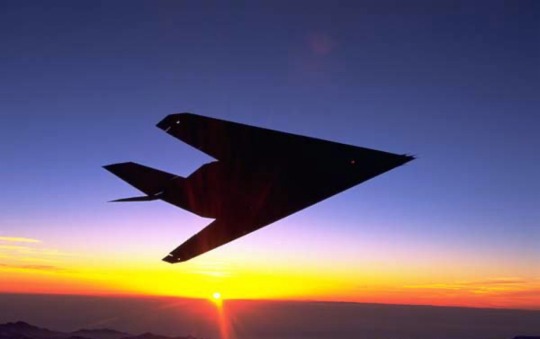
On this day in 1999, NATO warplanes unleash a 79-day bombing campaign against Serbia to break Belgrade's hold on Kosovo.
@MilHistNow via X
7 notes
·
View notes
Text
A documentary produced in Bosnia, Kosovo and Montenegro explores the scale of Kremlin-backed disinformation in these countries and its dangerous influence on the public.
youtube
A Balkan Investigative Reporting Network, BIRN, documentary, launched on Friday, shows how Western Balkan countries audiences have become vulnerable to disinformation from Russian-backed channels, especially since the start of its full-scale invasion of Ukraine in February 2022.
The 63-minute documentary “Putin Calling: Russia’s Disinformation Flows Unchecked Through Balkans” shows how Russian leader Vladimir Putin and his propaganda against NATO and the European Union have found fertile ground among Balkan audiences and how powerful politicians, businesses, influential media and groups of supporters of Putin have built their havens in Serbia, Montenegro, Bosnia and Herzegovina, and Kosovo.
The documentary concludes that across the region, disinformation peddlers have sought to spread the Kremlin’s narrative to draw parallels between NATO’s bombing of former Yugoslavia in spring 1999 and the Russian invasion of Ukraine.
It also explores how in the early days of Russia’s invasion, most Balkan countries attempted to cut off the Kremlin’s influence on the media and the public at large by disrupting main Russian information channels.
As part of pre-production phase, BIRN has mobilized a team of three investigative journalists within each country, Bosnia and Herzegovina, Kosovo, and Montenegro, who delved into the ground realities, conducting comprehensive interviews with a diverse group of more than 20 individuals, spanning experts, officials and media stakeholders. Their on-ground insights, collected from the heart of the affected regions, served as a foundation for the documentary, ensuring it is rooted in first-hand experiences and facts
The documentary highlights the challenge of disinformation in the Western Balkans originating from Kremlin-backed sources and showcases these disinformation campaigns.
BIRN’s approach prioritised depth and authenticity, both in understanding the issue and communicating it to the audience. The documentary evidences that Kremlin disinformation has influenced some groups in Montenegro and Kosovo with individuals who are sanctioned by the US becoming supporters of Putin in acts of violence and protests in support of the Russian invasion of Ukraine.
The documentary is in English and is subtitled in Albanian, Bosnian and Serbian.
6 notes
·
View notes
Text
Tony Blair, one of the orchestrators of the NATO bombing of former Yugoslavia.
Today is a day for recommendations - this is an interview with two of my favourite people - Alex Krainer who is on Substack and outstanding anti-imperialist journalist Finian Cunningham whose work can be found at Strategic Culture Foundation.
Twenty-five years ago in March 1999, the US-led NATO alliance launched a 10-week bombing campaign on former Yugoslavia.
It led to the balkanization of Serbia and Kosovo. It also led to the further enlargement of the NATO military bloc and endless foreign military interventions in violation of international law.
The NATO campaign to bomb Yugoslavia – only eight years after the end of the Cold War – invoked a humanitarian pretext but it did not have a legal mandate from the UN Security Council. It therefore was an illegal aggression perpetrated largely on the say-so of Washington.
President Joe Biden, then a senator, was wholeheartedly in favor of the audacious military action in Eastern Europe.
Alex Krainer, author of Grand Deception, contends that the NATO military aggression in Yugoslavia in 1999 was a strategic gambit by the US-led Western powers to pursue hegemonic ambitions of dominating Russia and any other geopolitical rival.
The aggression 25 years ago fatally undermined international law and set a precedent for the next quarter century of endless US and NATO wars around the world, including in Afghanistan, Iraq, Libya, Syria, across the Middle East and North Africa, and elsewhere.
5 notes
·
View notes
Text

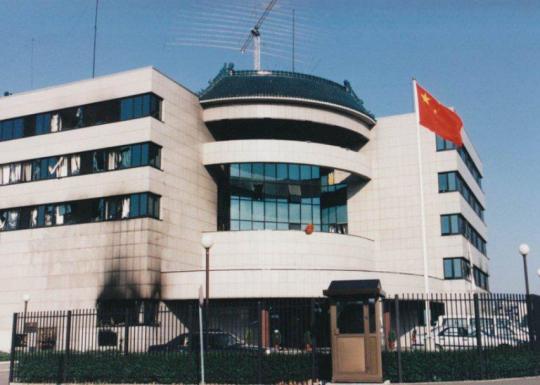
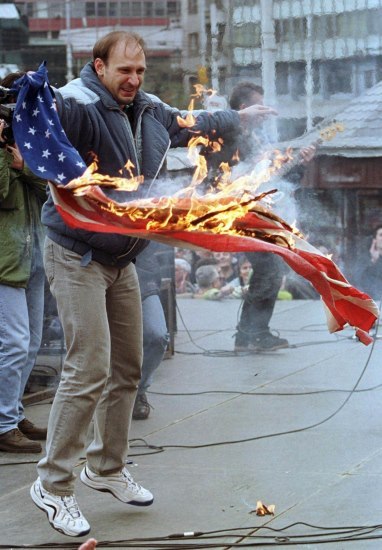

7th of May 1999. - the day China and Serbia became bonded in blood
on this day 25 years ago during the NATO aggression and bombing campaign embassy of China in Belgrade was targeted and as a result innocent people lost lives (journalists Xu Xinghu and his wife Zhu Ying and Shao Yunhuan)
we protested despite of the bombs, wore targets and resisted
we will not forget these crimes
#serbia#serbian history#china#nato#nato agression#nato is a criminal organisation#crimes against humanity#human rights
3 notes
·
View notes
Text
“Analysts have expressed concerns that relations between Serbia and Kosovo — tense at the best of times — have become increasingly hostile in recent months. Violence erupted in northern Kosovo in September, and Belgrade responded with a military buildup on its border with its neighbor.
Now there are concerns that the volatility in this southeastern region of Europe could tip into an armed conflict while the world is distracted by the war in Ukraine.
(…)
"Resolving the dispute between Kosovo and Serbia is no longer just a political matter, but a serious security issue for the region and for Europe," Engjellushe Morina and Majda Ruge, senior policy fellows at the European Council on Foreign Relations (ECFR), wrote last week.
"For the U.S. and EU, the choice is no longer just between the failure and success of the dialogue but between stability and a further escalation of violence. The latter is most likely unless they finally acknowledge Belgrade's role in destabilising Kosovo and adopt a robust approach to counter it."
(…)
Northern Kosovo, which borders Serbia, has an ethnic Serb majority whereas the country as a whole is around 93% ethnic Albanian. Serbian capital Belgrade does not recognize its neighbor as an independent state.
A key recent tipping point was local elections in the spring that saw ethnic Albanians elected to a number of municipalities in northern Kosovo. The results caused outrage among the ethnic Serb community in the region who had boycotted the votes, saying their demands for more autonomy had not been met.
Tensions ratcheted up further over the summer and erupted in late September following a shootout between a heavily armed group of ethnic Serbs and Kosovo special police forces in the northern Kosovo village of Banjska in which one police officer and three gunmen were killed.
NATO has had a peacekeeping mission in Kosovo since 1999 following a bloody conflict between ethnic Albanians opposed to ethnic Serbs and the government of Yugoslavia in 1998. The military alliance reacted to the September incident by deploying additional peacekeeping troops to the region, while Serbia bolstered its military presence along its border with Kosovo.
(…)
"From zero land wars in Europe, we could conceivably be looking at two very shortly," Ian Bremmer, founder of the Eurasia Group, said in a note Monday.
He likened the tensions to the recent lightning-fast conflict between Armenia and Azerbaijan, which culminated last month with the Azerbaijani military seizing the disputed region of Nagorno-Karabakh in a rapid offensive with little outside intervention.
"You have a long-simmering and unsustainable status quo being challenged by the dominant military, looking to see if anybody else cares enough to intervene," Bremmer said.
"In this case, that's NATO — less distracted than Russia, and much more likely to intervene directly — but the prospects of an invasion have gone way up over the past few days."
(…)
Tensions between Serbia and ethnic Albanians culminated in the 1998 Kosovo war between Yugoslav forces, led by Serbia, and a Kosovo-Albanian rebel group known as the Kosovo Liberation Army, who opposed the Serbian authorities and oppressive policies of Serb leader Slobodan Milošević.
Hundreds of thousands of Kosovo Albanians were displaced by the conflict and numerous war crimes were committed by both sides, although the majority were attributed to Serbian and Yugoslav government forces.
The conflict ended when NATO intervened in 1999, launching air strikes on Yugoslav armed forces until their withdrawal from Kosovo. NATO's aerial bombing campaign remains controversial to this day although it is credited with bringing the war to an end.
Kosovo declared itself independent from Serbia in 2008, a proclamation that Serbia rejected, and tensions have simmered ever since, not helped by the election of nationalist leaders in both Serbia (President Vučić) and Kosovo (Prime Minister Albin Kurti).
Nonetheless, Serbia has aspirations to join the EU and is unlikely to want to jeopardize this, or to tempt a direct response from NATO, according to Andrius Tursa, Central and Eastern Europe advisor at risk consultancy Teneo.
"A direct military offensive by the Serbian army on northern Kosovo is very unlikely due to the presence of NATO peacekeepers and the risk of punitive Western sanctions as a result of such action," Tursa said in a note Tuesday.”
“An armed band of Serb militants recently ambushed police in Kosovo. In the resulting firefight and retreat, four people — including a police officer — died from their wounds.
The incident sparked official recriminations from both Kosovo and Serbia, culminating in Serbia moving its armed forces towards the countries’ shared border only to subsequently withdraw them due to pressure from the United States.
Tensions between the two countries are nothing new. Serbia and Kosovo were previously united under Yugoslavia. The collapse of the country in the 1990s, however, caused Kosovo to push for independence.
Kosovar forces, backed by NATO, expelled the remnants of the Yugoslav army in 1999. Kosovo, however, remains central to Serbian national identity and Serbia has never truly reconciled itself to Kosovo’s independence.
(…)
The overthrow of former Serbian president Slobodan Milosevic in 2000, and the EU identifying Serbia as a candidate for expansion to join the union in 2003, provided Serbian politicians with an alternative policy to the nationalism of the past.
Serbia officially submitted its application to ascend to EU member status in 2009. Unfortunately, Serbia’s progress towards that goal has been painfully slow.
Slovenia and Croatia, two other former Yugoslav states, ascended to the EU in 2004 and 2013, respectively. From formal submission to full member status took each country 10 years or less.
Serbia’s application, now in its 14th year, shows no sign of being formally processed as it fails to meet many of the judicial, economic and political standards the EU requires for membership.
Serbia has made several gestures towards achieving EU membership. Most notably, it agreed to a plan to normalize relations with Kosovo. For many Serb nationalists, the question of Kosovo’s independence elicits visceral reactions due to Kosovo’s prominence in Serb nationalist identity.
(…)
In Serbia, EU membership remains a distant possibility that will probably only benefit future generations. Today, Serbians are seeking alternate ideologies that promise more immediate returns.
Given the EU’s association with liberal democracy and globalism, some Serbs are embracing populism and anti-western nationalism.
(…)
The EU’s problem is that its domestic and international problems not only limit the ability to deal with Serbia, but Serbia-Kosovo tensions magnify the EU’s own issues. Hungary’s Viktor Orban, for example, has already stated his country — an EU member — would veto any sanctions against Serbia.
Serbia’s provocations against Kosovo also provide Russia with a potential wedge issue in its efforts to divide the EU, as demonstrated by Orban’s statement.
EU support for Ukraine is already facing challenges from members like Slovakia. The EU’s failure to deal with Serbia in the past will only stoke such challenges, and further inhibit the organization’s ability to respond to crises like Ukraine.”
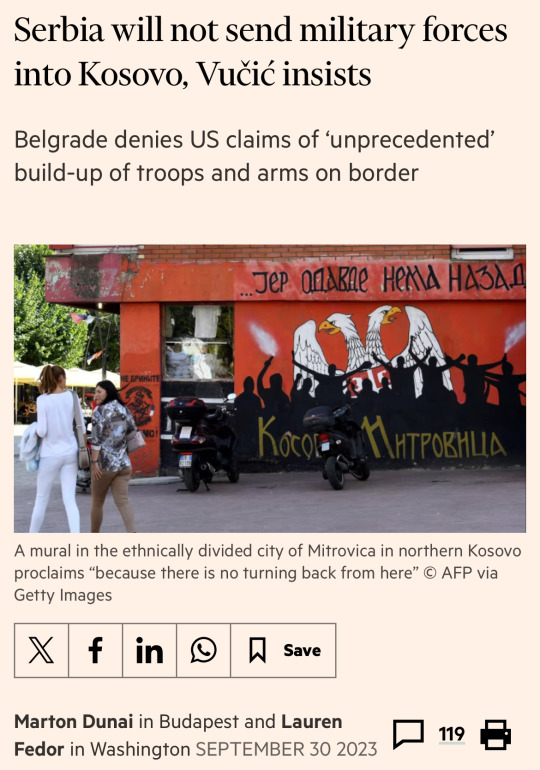
“On Friday White House National Security Council spokesperson John Kirby said the US had observed an “unprecedented staging of advanced Serbian artillery, tanks and mechanised infantry units” on the Kosovo border and called it a “very destabilising development”.
“We are calling on Serbia to withdraw those forces from the border and to contribute to lowering the temperature and the tension,” Kirby said, adding that Vučić and Antony Blinken, US secretary of state, had spoken about ways to defuse the situation.
International efforts to cool the tensions have mounted in recent days after a violent stand-off near a monastery in the Serb-majority north of Kosovo left at least four people dead, including a Kosovo police officer.
(…)
In a statement late on Saturday, the government of Kosovo said the Serbian army had indeed placed extra troops and equipment in 48 military and police bases within a few kilometres of the Kosovo border.
“In this placement, the placement of anti-air and heavy artillery is included… These bases serve to support possible military aggression against the Republic of Kosova,” the Pristina government said.
It demanded that Serbia “immediately withdraw all military troops from the border and close and demilitarise the bases, which pose a permanent threat to our country.””
#kosovo#serbia#balkans#balkanization#yugoslavia#war#wwiii#world war 3#russia#ukraine#european union#eu#europe#ian bremmer
4 notes
·
View notes
Text
PRISTINA, June 15 (Reuters) - Kosovo has tightened controls on its border with Serbia following the arrest of three of its policemen by Serbian forces, Prime Minister Albin Kurti said on Thursday as he demanded the immediate release of the detainees.
Both Belgrade and Pristina gave different locations of the arrest of the three policemen, with each accusing the other side of crossing the border illegally.
The detentions were the latest in a series of developments that have raised tensions between Kosovo and Serbia, sparking fears of renewed violence between the former wartime foes.
At the Merdare border crossing, the biggest between Kosovo and Serbia, there was a long line of trucks on Thursday morning following Kosovo's decision to ban trucks with Serbian licence plates and Serbian goods from entering its territory.
A Reuters reporter saw small vehicles with Serbian licence plates crossing the border, despite the government's announcement that it would ban all vehicles, including cars.
"Because of the security concerns as an immediate step border controls have been tightened with Serbia," Kurti told a press conference on Thursday.
"We demand the immediate release of the three kidnapped police officers and call on the international community to condemn Serbia's act of aggression," Kurti said.
Serbian President Aleksandar Vucic, who has said the three Kosovo policemen were arrested deep in Serbian territory, met ambassadors of the United States, Italy, France, Germany and Britain, known as the Quint group.
"I spoke to representatives of the EU and the Quint group. I have asked them to do whatever is in their power to stop Kurti from initiating another war in the Balkans," Vucic wrote on his Instagram account after the meeting.
On Wednesday, the European Union said it had agreed punitive measures on Kurti's government, accusing him of failing to take steps to defuse the broader crisis.
Kosovo declared independence from Serbia in 2008, nearly a decade after an uprising by the 90% ethnic Albanian majority.
In 1999, a NATO bombing campaign drove Serbian security forces out of Kosovo but Belgrade continues to regard it as a southern province.
Kosovo and Serbia share a 400-km (250-mile) border which has not been clearly marked or agreed.
Violence flared last month when 30 NATO peacekeepers and 52 Serbs were injured in clashes in four predominantly Serb municipalities in northern Kosovo.
2 notes
·
View notes
Text
Wars, 0 trials. Enough said.
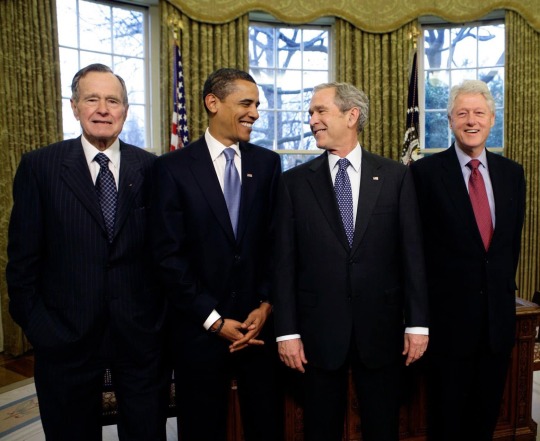
George H. W. Bush (1989-1993)
Gulf War (1990-1991): Also known as Operation Desert Storm, this conflict was a response to Iraq's invasion of Kuwait. A U.S.-led coalition drove Iraqi forces out of Kuwait.
Operation Just Cause (1989): The U.S. invasion of Panama aimed at deposing Panamanian leader Manuel Noriega.
Bill Clinton (1993-2001)
Bosnian War (1992-1995): The U.S. became involved in NATO-led operations in Bosnia and Herzegovina, including the enforcement of no-fly zones and airstrikes against Bosnian Serb forces. This culminated in the Dayton Agreement.
Kosovo War (1998-1999): NATO, led by the U.S., conducted a bombing campaign against Yugoslavia (Serbia and Montenegro) to stop human rights abuses against ethnic Albanians in Kosovo.
Operation Gothic Serpent (1993): This was part of the broader United Nations' intervention in Somalia, aiming to capture warlord Mohamed Farrah Aidid. It included the Battle of Mogadishu, famously known as "Black Hawk Down."
George W. Bush (2001-2009)
War in Afghanistan (2001-present): Initiated in response to the September 11 attacks, this war aimed to dismantle al-Qaeda and remove the Taliban from power.
Iraq War (2003-2011): Launched on the premise that Iraq possessed weapons of mass destruction, this conflict led to the toppling of Saddam Hussein's regime.
War on Terror (2001-present): This is a broader term encompassing various military operations and initiatives aimed at combatting terrorism globally.
Barack Obama (2009-2017)
Continuation of the War in Afghanistan: Obama increased troop levels in Afghanistan in an attempt to stabilize the country, before beginning a drawdown of forces.
Iraq War and ISIS Conflict: While Obama ended the U.S. combat mission in Iraq in 2011, U.S. forces returned in 2014 to help combat ISIS (Islamic State of Iraq and Syria).
Libyan Civil War (2011): The U.S. participated in a NATO-led intervention that led to the overthrow of Muammar Gaddafi.
Operation Neptune Spear (2011): The mission that led to the killing of Osama bin Laden in Pakistan.
Interventions in Syria: The U.S. was involved in the Syrian Civil War, primarily through support of rebel groups and airstrikes against ISIS targets.
#Gulf War#Operation Desert Storm#Panama Invasion#Operation Just Cause#Bosnian War#Kosovo War#Operation Gothic Serpent#Black Hawk Down#Somalia Intervention#War in Afghanistan#Iraq War#War on Terror#ISIS Conflict#Libya Intervention#Syrian Civil War#Operation Neptune Spear#NATO Operations#U.S. Military History#Presidential Wars#U.S. Foreign Policy#today on tumblr#new blog
0 notes
Text
Events 4.23 (after 1950)
1951 – Cold War: American journalist William N. Oatis is arrested for espionage by the Communist government of Czechoslovakia.
1961 – Algiers putsch by French generals.
1966 – Aeroflot Flight 2723 crashes into the Caspian Sea off the Absheron Peninsula, killing 33 people.
1967 – Soviet space program: Soyuz 1 (Russian: Союз 1, Union 1) a crewed spaceflight carrying cosmonaut Colonel Vladimir Komarov is launched into orbit.
1968 – Vietnam War: Student protesters at Columbia University in New York City take over administration buildings and shut down the university.
1971 – Bangladesh Liberation War: The Pakistan Army and Razakars massacre approximately 3,000 Hindu emigrants in the Jathibhanga area of East Pakistan (now Bangladesh).
1979 – SAETA Flight 011 crashes in Pastaza Province, Ecuador, killing all 57 people on board. The wreckage was not discovered until 1984.
1985 – Coca-Cola changes its formula and releases New Coke. The response is overwhelmingly negative, and the original formula is back on the market in less than three months.
1990 – Namibia becomes the 160th member of the United Nations and the 50th member of the Commonwealth of Nations.
1993 – Eritreans vote overwhelmingly for independence from Ethiopia in a United Nations-monitored referendum.
1993 – Sri Lankan politician Lalith Athulathmudali is assassinated while addressing a gathering, approximately four weeks ahead of the Provincial Council elections for the Western Province.
1999 – NATO bombs the headquarters of Radio Television of Serbia, as part of their aerial campaign against the Federal Republic of Yugoslavia.
2005 – The first YouTube video, titled "Me at the zoo", was published by co-founder Jawed Karim.
2013 – At least 111 people are killed and 233 injured as violence breaks out in Hawija, Iraq.
2018 – A vehicle-ramming attack kills 11 people and injures 15 in Toronto. A 25-year-old suspect, Alek Minassian, is arrested.
2019 – The April 2019 Hpakant jade mine collapse in Myanmar kills four miners and two rescuers, with at least 50 others missing and presumed dead.
0 notes
Text
NATO bolsters Kosovo peacekeepers with heavier armament amid rising tensions
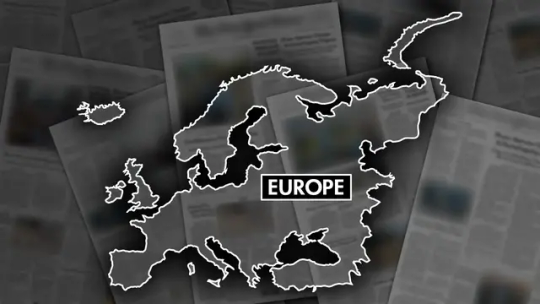
NATO Strengthens Peacekeepers in Kosovo Amidst Rising Tensions
In response to recent violent clashes in Kosovo, a high-ranking NATO commander announced on Tuesday that the alliance has bolstered its peacekeeping unit in the region with more robust weaponry. This move comes after an exchange of gunfire involving masked Serb gunmen and Kosovo police, which resulted in four fatalities and heightened tensions.
Admiral Stuart B. Munsch, hailing from the Allied Joint Force Command in Naples, Italy, shared that a battalion of approximately 200 troops from the United Kingdom and another 100 from Romania will provide the NATO-led Kosovo Force (KFOR) with increased combat capabilities. However, specific details about the upgraded armament were not disclosed.
KFOR, comprising around 4,500 troops from 27 different nations, has maintained a presence in Kosovo since June 1999 but has been primarily equipped with lighter arms and vehicles. The deployment followed the conclusion of the 1998-1999 war between Serbia and Kosovo, which saw a NATO-led bombing campaign force Serbian forces to withdraw from Kosovo, resulting in the loss of over 10,000 lives, predominantly Kosovo Albanians.
The recent escalation began on September 24 when about 30 Serb gunmen killed a Kosovar police officer and established barricades in northern Kosovo. This led to an extended firefight with Kosovo police, during which three of the gunmen were killed.
Following earlier clashes in May, NATO initially increased its troop presence with approximately 600 Turkish troops. Admiral Munsch emphasized NATO's readiness to deploy additional forces and armaments to maintain peace in the region, including those with even more substantial combat capabilities.
Outgoing KFOR commander Major General Angelo Michele Ristuccia emphasized the importance of supporting the EU-facilitated dialogue between Pristina and Belgrade, aimed at normalizing their relations. He underscored the volatility of the situation, highlighting the need for a political solution to ensure lasting peace and stability.
In February, the European Union proposed a 10-point plan to resolve ongoing political crises in the region. Although Kosovar Prime Minister Albin Kurti and Serbian President Aleksandar Vucic initially approved the plan, some reservations still remain unresolved.
The EU-facilitated dialogue, initiated in 2011, has produced limited results. Kosovo, a former province of Serbia, declared its independence in 2008, a move not recognized by Belgrade.
Read the full article
0 notes
Text
The United States and NATO breathed a sigh of relief this week when the Serbian government said it would be pulling back troops after ordering a swift military buildup along its border with Kosovo. The National Security Council had referred to the buildup as “a very destabilizing development”—and news of the apparent de-escalation was “welcome,” the U.S. State Department said.But according to officials and experts in Kosovo who spoke with The Daily Beast, only a symptom of the problem is gone. Beneath the surface, Serbian-Kosovar tensions threaten to bubble over still, with Russia stoking them behind the scenes through a vast and entrenched influence operation in Serbia.Russian propaganda runs rampant in Serbia, spreading falsehoods and pro-Kremlin lines on territorial ambition, violence, the war in Ukraine, and NATO and the West. The sweeping Russian disinformation and propaganda operation is aimed at stoking violence and is partly aimed at propping up Serbia’s efforts to control Kosovo, Kosovo’s ambassador to the United States, Ilir Dugolli, told The Daily Beast in an exclusive interview.“We’ve seen different attempts from Russia… and echoed of course in Serbia, about instigating violence, about portraying this… dire situation of Serbs in the northern parts of Kosovo in particular and also in other areas… to incite violent attacks and overall instability,” Dugolli told The Daily Beast.Kosovo declared independence from Serbia in 2008, after separatist ethnic Albanians fought against Serbian rule in the late 1990s, prompting a crackdown from Belgrade. A NATO bombing campaign in 1999 eventually forced Serbian forces to withdraw from Kosovo.Putin’s Favorite Authoritarians in Hungary, Serbia, and France Had a Great Week But Serbia and Russia, along with a handful of countries, have not recognized Kosovo’s independence. Serbia’s current president has vowed to never recognize Kosovo’s independence, and Russia has long harbored concerns about Kosovo, noting for years that it will categorically deny Kosovo’s independence.In recent days, those long-standing tensions have spiraled into violence.The alarming buildup at Serbia’s border with Kosovo came in quick succession after Serb gunmen stormed a village in northern Kosovo in armed vehicles, leading to a shootout, with one police officer and several gunmen killed late last month. Kosovo accused Serbia of being behind the attack, claiming Serbia sought to destabilize Kosovo.Serbia boasts some ties with the West—it was identified as a candidate for the European Union in 2012. But Russia’s strong influence, combined with its control over the media and the information environment in Serbia, helps to spread narratives that further entrench pro-Russia and anti-Western sentiments that keep Belgrade in Russia’s orbit.Many news outlets in Serbia are owned by oligarchs with links to Serbian President Aleksandar Vučić, who maintains close ties with Russian President Vladimir Putin. In 2015, Russia established a hub for Russian state news agency Sputnik. Currently, Russia is in the process of deepening its channels for disinformation in Serbia: Russia’s state-funded RT said last year it would establish a local language version in Serbia, to be headed by the daughter of the editor of Sputnik.Oozing DisinformationThe Russian narratives that have swept Serbia in recent years include anti-West and anti-NATO narratives that seek to solidify Serbian public opinion that Kosovo is not independent.In Serbia, the focus is on reminding Serbs about NATO’s bombing campaign, and blaming the West for essentially pulling Kosovo away from Serbia, said Ruslan Stefanov, co-director and co-author of the Kremlin Playbook, a joint project of the Center for the Study of Democracy (CSD) and the Center for Strategic and International Studies.“In the case of Serbia, the No. 1 narrative of course is, ‘Don’t forget NATO… it helped Kosovo secede. It is a part of your country,’” Stefanov told The Daily Beast. “‘This is part of NATO’s expanded campaign.
’”In recent months, some of the most popular narratives on Russian and Serbian media in the country involve Kosovo, Goran Georgiev, an analyst with CSD, said.“The topic of Kosovo is the main topic for Sputnik and RT and also for local media, the majority of which are pro-Russian,” Georgiev told The Daily Beast.Armend Nimani/AFP via Getty ImagesAccording to data from Similarweb CSD shared with The Daily Beast, the most popular sites by traffic in Serbia are Kurir.rs—boasting 60.7 million visits in August—followed by Blic.rs, Novosti.rs, sd.rs, and RTS.rs, many of which spread pro-Russia lines. On Facebook, Sputnik and RT have garnered the most interactions in the last 30 days, according to data from CrowdTangle.The Serbian media space is filled with mischaracterization of facts and propaganda, with Alo and Kurir.rs accounting for over half of the news spreading disinformation, according to a watchdog report from CRTA, the Center for Research, Transparency and Accountability. Večernje novosti and Informer, two dailies, are the next most egregious offenders, according to the analysis.Sputnik in Serbia’s homepage has been brazen about Kosovo in recent days. One headline lamented that “The West’s action has never been more morbid: They do not know that the day of mourning for the Serbs lasts until freedom comes to Kosovo,” echoing a longstanding belief in Serbia that Kosovo is under a kind of “occupation.”The piece claims the deadly attack in Kosovo represents a hatred in Kosovo towards Serbs’ lives. “Evil reigns in Kosovo,” the piece states.In another piece, Sputnik trumped up comments from the president of the National Assembly of Serbia, Vladimir Orlić, blaming Kosovo for the soaring tensions. He “pointed out that the situation is extremely difficult” with Kosovo right now, the story noted, adding “it is solely the fault of Aljbin Kurti,” the prime minister of Kosovo.The homepage of Kurir.rs has also paid homage to Serbia’s territorial ambition in Kosovo this week. On Wednesday, one piece focused on denying Kosovo’s independence, while noting optimism about Serbia’s effort to work with the likes of Russia and China on Kosovo and “defending” Serbia’s territory.More broadly, narratives about territorial ambition in Serbia have closely followed Russian perspectives on violence and war. In the case of Russia’s war in Ukraine, Russian media and Serbian media have focused on spreading fake information about the war in Ukraine. Headlines such as “Ukraine started a war against Russia,” or “Ukrainian troops shelled the maternity hospital” cropped up in Serbia shortly after Russia invaded Ukraine, according to Vox Ukraine and the Centre for International Crisis and Conflict Studies (CECRI).The Most Sincere Form of FlatteryThe military buildup and violent incidents in recent days have raised questions about whether further escalation in the Balkans is on the horizon, and who is to blame.Concern has grown in Kosovo that Russian influence has played a part. Serbia is likely taking inspiration from Russia’s effort to seize Ukraine following Putin’s invasion of Ukraine, Kosovo’s ambassador to the United States said.“With the war in Ukraine” there was “the realization of their aspirations against my country… would kind of be easier,” Dugolli told The Daily Beast.Serbia “mimics Russia, and tries to mimic Russia in their hegemonic aspirations by threatening the existence of neighboring countries,” Dugolli added. “They have this sort of hegemonic mindset.”Belgrade has long been conducting military buildups at its border with Kosovo. Last year, Serbia sent troops to the border. In 2021, too, Serbia sent warplanes.Russia’s ambassador cheered on the escalation, Kosovo claimed at the UN. Russia’s ambassador had visited a Serbian garrison at the time while it was in a state of increased combat readiness.From Kosovo’s perspective, the longstanding aim is to create an environment where escalation is so commonplace that when an eventual territorial grab in Kosovo comes, it will look like the status quo.
“What they’ve been doing for years now is… they’ve raised the army to the highest levels several times, they’ve amassed their army at the border,” Ambassador Dugolli said. “This is one part of their plan to try to normalize threat of force, to escalate.”In parallel efforts, disinformation on the topic has festered in Serbia. In 2020, Twitter took down a network of thousands of trolls that promoted Serbia’s ruling party and applauded its policies on Kosovo.One of the troll army’s tweets with the most engagement noted that: “Kosovo is not a state but is part of Serbia and no compromise can be found,” according to a Stanford analysis of Twitter’s release. (Twitter and X have deleted the post about the network.)Russian outlets in Serbia through the years have promoted stories about Kosovo being at the heart of Serbian history to promote the push to take it back. And on the flip side, media outlets close to the Serbian government have run disinformation campaigns on Kosovo in attempts to make it look like Kosovo’s westward lean was in jeopardy.While the status of Serbia-Kosovo tensions is grave now, Dugolli said he fears the worst is yet to come.Not Now, Europe. Second War Threatens to ExplodeThey are “really looking for that good moment, where they would try to destabilize entirely, try to have territorial gains,” Dugolli added. “They want to have an incursion.”For Putin, a Serbian-Kosovar conflict may serve as a gift as his war flags in Ukraine. A flashpoint between Serbia and Kosovo could distract NATO, which maintains a peacekeeping force in Kosovo.Ensnaring the region could also serve a larger Russian goal of keeping Serbia and Kosovo at loggerheads to help Russia project power and control in the region.“Looking at the Kremlin playbook… I wouldn’t be surprised if it was actually caused by some desperation or sort of somebody somewhere along the line of chain of command saying, ‘Hey how about we cheer up our dear leader at some point and do something?’” Stefanov said.Dugolli said the faltering war was likely a trigger for Serbia to take action.“The fact that the war hasn’t gone as Russia was hoping and the leadership in Serbia were hoping as well, maybe that created an initiative… they’re trying to reposition themselves,” Dugolli said. “Russia would benefit from opening up another front.”Erkin Keci/Anadolu Agency via Getty.Russia’s interest in stirring tension between Serbia and Kosovo is rooted in broader territorial ambition as well, according to Kosovo’s president, Vjosa Osmani.Osmani called the recent flashpoint a “Crimea-style annexation” attempt in an interview on CNN, in a reference to the Ukrainian peninsula Russia illegally annexed in 2014.The president added she harbors concerns that Putin is pulling strings behind the scenes. The incident shows Serbia is working “to allow Putin to open a new front in the West, in the western Balkans,” Osmani said.Puppet MasterRussia has had fertile ground in Serbia to spread the Kremlin line for years—but Belgrade has taken on a particularly unshakeable role in channeling Russian influence in recent months.Just in the last year, the European Union banned Russian-controlled media operating in their countries since Russia invaded Ukraine. But Belgrade has not shut off the spout of Russian propaganda, allowing Serbia to serve as a key foothold for Russian influence in the region.“Serbia has allowed the free rein of Russian propaganda,” Stefanov said, leading to a cycle of amplification among politicians, the public, and Serbian media outlets citing Russian outlets. “These same lines are parroted by major political parties… which of course amplifies that.”The Serbian media landscape’s reach is not just local. While a majority of the traffic to Kurir.rs in August came from Serbia, for instance, over 20 percent of traffic also came from Bosnia, Montenegro, North Macedonia, and Croatia, CSD’s Georgiev noted.“The Serbian language is a gateway to informational influence in former Yugoslavia for Serbian political actors, as well as the Kremlin,” Georgiev said.
Heavy lifting for Russian influence operations in Serbia is not always necessary.At times, the line between where Russian disinformation and Serbian disinformation end and where organic sentiment begins can be difficult to discern. In Serbia, the disinformation space is characterized by people looking for information that reinforces their deeply ingrained beliefs about the West and Kosovo they have held for years.On Ukraine, only 12 percent of Serbs polled said that they believed it was necessary for Russia to withdraw in order to achieve peace, echoing a classic stance from Moscow, according to a poll conducted by Datapraxis and YouGov in coordination with the Open Society Foundations last year. As many as 63 percent of Serbs polled held the West responsible for the war in Ukraine, not Russia.The Serb public buys into opposition to Kosovo’s independence as well: 52 percent of Serbs believe Serbia should not recognize Kosovo.“There is a lot of authentic, natural behavior mixed in,” Georgiev said.Through the years, Russia has made a point in Serbia to execute a classic influence operation that works to juice existing sentiments and tension.“In the case of Serbia, when you have a population that has been so heavily exposed and really bombarded with ultra-nationalistic narratives, authoritarian narratives, highly emotional narratives from the bombing to today, society adopts that whole mentality,” Georgiev said. “This information breathes for itself.”Read more at The Daily Beast.Get the Daily Beast's biggest scoops and scandals delivered right to your inbox. Sign up now.Stay informed and gain unlimited access to the Daily Beast's unmatched reporting. Subscribe now.
0 notes
Text
Operation Allied Force
The North Atlantic Treaty Organisation (NATO) carried out an aerial bombing campaign against the Federal Republic of Yugoslavia during the Kosovo War. The air strikes lasted from 24 March 1999 to 10 June 1999. The bombings continued until an agreement was reached that led to the withdrawal of Yugoslav armed forces from Kosovo, and the establishment of the United Nations Interim Administration Mission in Kosovo, a UN peacekeeping mission in Kosovo. The official NATO operation code name was “Operation Allied Force” whereas the United States called it “Operation Noble Anvil”; in Yugoslavia the operation was incorrectly called “Merciful Angel” (Serbian: Милосрдни анђео / Milosrdni anđeo) as a result of a misunderstanding or mistranslation.
NATO’s intervention was prompted by Yugoslavia’s bloodshed and ethnic cleansing of Albanians, which drove the Albanians into neighbouring countries and had the potential to destabilize the region. Yugoslavia’s actions had already provoked condemnation by international organisations and agencies such as the UN, NATO, and various INGOs. Yugoslavia refused to sign the Rambouillet Accords which was offered as an initial justification for NATO’s use of force. NATO countries attempted to gain authorisation from the UN Security Council for military action, but were opposed by China and Russia, who indicated that they would veto such a measure. As a result, NATO launched its campaign without the UN’s approval, stating that it was a humanitarian intervention. The UN Charter prohibits the use of force except in the case of a decision by the Security Council under Chapter VII, or self-defence against an armed attack – neither of which were present in this case.
An important portion of the war involved combat between the Yugoslav Air Force and the opposing air forces from NATO. United States Air Force F-15s and F-16s flying from Italian airforce bases attacked the defending Yugoslav fighters, mainly MiG-29s, which were in poor condition due to a lack of spare parts and maintenance. Other NATO forces also contributed to the air war.
During the night of 24/25 March 1999: Yugoslav Air Force scrambled five MiG-29s to counter the initial attacks. Two fighters that took off from Niš Airport were vectored to intercept targets over southern Serbia and Kosovo were dealt with by NATO fighters. The MiG-29 flown by Maj. Dragan Ilić was damaged; he landed with one engine out and the aircraft was later expended as a decoy. The second MiG, flown by Maj. Iljo Arizanov, was shot down by an USAF F-15C piloted by Lt. Col. Cesar Rodriguez. A pair from Batajnica Air Base (Maj. Nebojša Nikolić and Maj. Ljubiša Kulačin) were engaged by USAF Capt. Mike Shower who shot down Nikolić while Kulačin evaded several missiles fired at him, while fighting to bring his malfunctioning systems back to working order. Eventually realising that he could not do anything, and with Batajnica AB under attack, Kulačin diverted to Belgrade Nikola Tesla Airport, hiding his aircraft under the tail of a parked airliner.[91] The fifth and last MiG-29 to get airborne that night was flown by Maj. Predrag Milutinović. Immediately after take-off his radar failed and electrical generator malfunctioned. Shortly after, he was warned of being acquired by fire control radar, but he eluded the opponent by several evasive manoeuvres. Attempting to evade further encounters, he approached Niš Airport, intending to land, when he was possibly hit by an 2K12 Kub in a friendly fire incident, but more probably he was shot down by a KLU F-16AM flown by Maj. Peter Tankink and forced to eject.
In the morning of 25 March, Maj. Slobodan Tešanović stalled his MiG-29 while landing on Ponikve Airbase after a re-basing flight. He ejected safely.
During the war Yugoslav strike aircraft J-22 Oraos and G-4 Super Galebs performed some 20–30 combat missions against the KLA in Kosovo at treetop level causing some casualties. During one of those missions on 25 March 1999, Lt. Colonel Života Ðurić was killed when his J-22 Orao hit a hill in Kosovo. It was never firmly established whether an aircraft malfunction, pilot error or if enemy action (by KLA) was the cause (NATO never claimed they shot it down).
In the afternoon of 25 March 1999 two Yugoslav MiG-29s took off from Batajnica to chase a lone NATO aircraft flying in the direction of the Bosnian border. They crossed the border and were engaged by two US F-15s. Both MiGs were shot down by Captain Jeff Hwang. One MiG pilot, Major Slobodan Perić, having evaded at least one missile before being hit ejected, was later smuggled back to Yugoslavia by the Republika Srpska police. The other pilot, Captain Zoran Radosavljević, did not eject and was killed.
DATE CALLSIGN UNIT PILOT AIRCRAFT SERIAL/BUNO TARGET(S) ORDNANCE
24 Mar 99 KNIFE 13 493 FS/48 FW Rodriguez F-15C 86-0169 MiG-29 AIM-120
24 Mar 99 EDGE 61 493 FS/48 FW Shower F-15C 86-0159 MiG-29 AIM-120
26 Mar 99 DIRK 21 493 FS/48 FW Hwang F-15C 86-0156 MiG-29 AIM-120
26 Mar 99 DIRK 21 493 FS/48 FW Hwang F-15C 86-0156 MiG-29 AIM-120
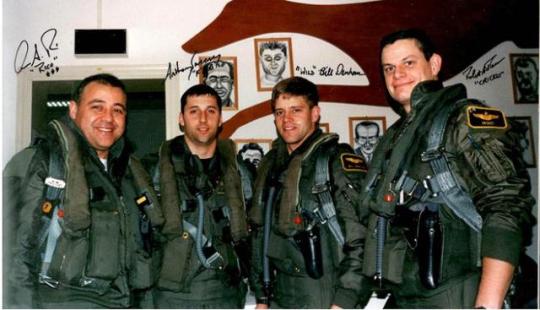
Departing on their first operational mission “Allied Force” from Cervia AB, Italy on the 24th March 1999. From left to right Cesar “Rico” Rodriguez (element Leader), Anthony “K Bob” Sweeney (Wingman), “Wild” Bill Denham (wingman), Robert “Criket”Renner (Flight Leader) 493rd Fighter Squadron Grim Reapers

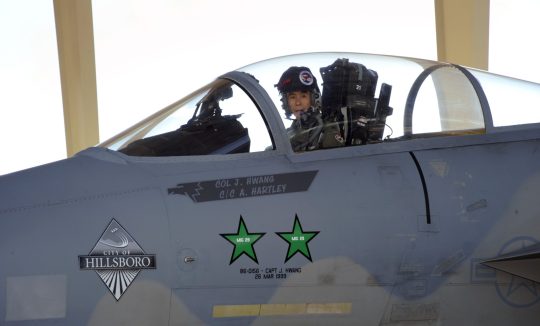
Colonel Jeff Hwang just after his last flight in the F-15C Eagle in 2014. “Claw” Hwang, as the green stars show, destroyed two (Serbian) MiG-29s during Operation Allied Force in 1999. At the time of this picture, Colonel Hwang was flying with the Oregon ANG
3 notes
·
View notes
Text
Serbian Foreign Minister and acting Prime Minister Ivica Dacic said on Monday at UN headquarters in New York that he was “disappointed” that the Security Council declined to hold a debate about the 1999 bombing, which had been proposed by Serbia’s ally Russia.
Dacic argued that “the truth about the NATO aggression 25 years ago against the then Federal Republic of Yugoslavia was prevented from being heard today”.
Russia proposed the debate to coincide with the 25th anniversary of the start of the Western military alliance’s 78-day bombing campaign, which forced Yugoslav President Slobodan Milosevic’s regime to end its repression of Kosovo Albanians and to withdraw its troops and police from what was then a Serbian province.
Other Security Council members objected to holding the debate, so a vote was held about whether it should be on the agenda. Russia, China and Algeria’s representatives voted in favour, but all the other states abstained so the debate wasn’t held.
Dacic criticised the procedure, saying that “just as the bombing of Serbia itself was carried out as a precedent, that a precedent has happened that was not happening here in the Security Council for a long time”.
But Kosovo’s Minister of Foreign Affairs and Diaspora, Donika Gervalla Schwarz, called Russia’s efforts to hold the debate “an attempt to draw absurd and unacceptable parallels between NATO intervention and [Russia’s] aggressive war to annex Ukraine territory”.
Gervalla Schwarz, who also was at UN headquarters in New York even though Kosovo is not a UN member state, was accompanied by Vasfije Krasniqi- Goodman, a wartime rape survivor who was recently appointed by President Vjosa Osmani as her special envoy for survivors of sexual assault during the 1998-99 war.
Russia’s ambassador to the UN, Vassily Nebenzia, sought to justify the proposal by saying that the debate was important for the current situation in the Balkans.
Nebenzia said that “some Security Council colleagues would probably say that the events of 25 years ago are ‘history’ and have no relevance today. However, it is clear to any reasonable mind that the destruction of a sovereign state led to the chaos that is gaining momentum today, and not only in Kosovo but in the Balkans as a whole.”
France’s representative Nicolas de Riviere argued however that “it’s clear, even for Russia, that the topic proposed for today will not contribute in any way to progress towards settlement of the dispute”.
“It is cynically using the issue of NATO’s military intervention in 1999, and is seeking to justify its war against Ukraine in this manner, as it did in the past, to justify its aggressive foreign policy in Georgia in 2008, and Crimea in 2014,” de Riviere said.
“And it’s doing so to the detriment of the concerned parties, starting with Serbia, who, again, was not consulted before this initiative was launched,” he added.
2 notes
·
View notes
Text
25 years commemoration of NATO’s military intervention against the Federal Republic of Yugoslavia (the FRY) in March−June 1999 once again opened the question of the Western foundation for Kosovo’s secession from Serbia and its unilateral proclamation of a quasi-independence in February 2008. Kosovo became the first and only European state today that is ruled by the terroristic warlords as a party’s possession – the (Albanian) Kosovo Liberation Army (the KLA). This article aims to investigate the nature of NATO’s war on Yugoslavia in 1999 which has as an outcome the creation of the first terroristic state in Europe – the Republic of Kosovo.
Terrorism and Kosovo Independence
The KLA terrorists with support from the US and the EU’s administrations launched full-scale violence in December 1998 for the sole purpose of provoking NATO’s military intervention against the FRY as a precondition for Kosovo secession from Serbia hopefully followed by internationally recognized independence. To finally resolve the “Kosovo Question” in the favor of the Albanians, the US Clinton administration brought two confronting sides to formally negotiate in the French castle of Rambouillet in France in February 1999 but in fact to impose an ultimatum to Serbia to accept de facto secession of Kosovo. Even though the Rambouillet ultimatum de iure recognized Serbia’s territorial integrity, the disarmament of terroristic KLA and did not mention Kosovo’s independence from Serbia, as the conditions of the final agreement were in essence highly favorable to the KLA and its secessionist project towards independent Kosovo, Serbia simply rejected them. The US’s answer was a military action led by NATO as a “humanitarian intervention” in order to directly support the Kosovo Albanian separatism. Therefore, on March 24th, 1999 NATO started its military operation against the FRY which lasted till June 10th, 1999. Why the UN’s Security Council was not asked for the approval of the operation is clear from the following explanation:
“Knowing that Russia would veto any effort to get UN backing for military action, NATO launched air strikes against Serbian forces in 1999, effectually supporting the Kosovar Albanian rebels”.[1]
The crucial feature of this operation was a barbarian, coercive, inhuman, illegal, and above all merciless bombing of Serbia for almost three months. Nevertheless, NATO’s military intervention against the FRY – Operation Allied Force, was propagated by its proponents as a purely humanitarian operation, it is recognized by many Western and other scholars that the US and its client states of NATO had mainly political and geostrategic aims that led them to this military action.
The legitimacy of the intervention in the brutal coercive bombing of both military and civilian targets in Kosovo province and the rest of Serbia became immediately controversial as the UN’s Security Council did not authorize the action. Surely, the action was illegal according to international law but it was formally justified by the US administration and the NATO’s spokesman as legitimate for the reason that it was unavoidable as all diplomatic options were exhausted to stop the war. However, a continuation of the military conflict in Kosovo between the KLA and Serbia’s state security forces would threaten to produce a humanitarian catastrophe and generate political instability in the region of the Balkans. Therefore, “in the context of fears about the ‘ethnic cleansing’ of the Albanian population, a campaign of air strikes, conducted by US-led NATO forces”[2] was executed with a final result of the withdrawal of Serbia’s forces and administration from the province: that was exactly the main requirement of the Rambouillet ultimatum.
3 notes
·
View notes
Text
The Big Picture: The NATO bombing of Novi Sad.
Burning NIS oil refinery in Novi Sad during 1999. NATO bombing of Yugoslavia.
The NATO bombing of Novi Sad during the Kosovo War in 1999 remains one of the most controversial episodes in the history of modern warfare. Novi Sad, the second-largest city in Serbia, was severely affected during the NATO campaign aimed at curbing the Serbian aggression in Kosovo. This operation brought to the fore…

View On WordPress
#Africa#arts#Asia#Australia#Europe#Featured#history#North America#photography#politics#South America#war
1 note
·
View note
Text
Here's a timeline of Kosovo's history with key details:
- **4th century BCE**: Early settlements in the region now known as Kosovo by various Illyrian and Dardanian tribes.
- **1389**: The Battle of Kosovo takes place between Serbian and Ottoman forces. Despite being a tactical draw, it marks the beginning of Ottoman dominance in the Balkans.
- **Late 14th to early 20th century**: Kosovo remains under Ottoman rule for several centuries, with a significant Albanian population in the region.
- **1912**: During the First Balkan War, the Kingdom of Serbia captures Kosovo from the Ottomans.
- **1918**: Kosovo becomes part of the Kingdom of Serbs, Croats, and Slovenes, later known as Yugoslavia.
- **1941-1945**: Yugoslavia is occupied by Axis powers during World War II. Kosovo is initially under Italian control and later by Nazi Germany.
- **1945**: Kosovo is reintegrated into Yugoslavia, now a socialist federation under Josip Broz Tito.
- **1974**: The Yugoslav Constitution grants Kosovo substantial autonomy within the Socialist Federal Republic of Yugoslavia.
- **Late 1980s**: Rising nationalism and tensions in Kosovo, with demands for greater autonomy and recognition of Albanian language and culture.
- **1989**: Yugoslav President Slobodan Milošević revokes Kosovo's autonomy, leading to protests and increased tensions.
- **1990**: The Kosovo Assembly declares independence, although this declaration is not internationally recognized.
- **1999**: NATO intervenes in Kosovo, leading to the end of hostilities in the Kosovo War. Kosovo is placed under United Nations administration (UNMIK).
- **2008**: Kosovo unilaterally declares independence from Serbia, which is recognized by a significant number of countries, including the United States and many EU nations.
- **2013**: The EU-mediated Brussels Agreement is reached between Kosovo and Serbia, normalizing relations between the two.
- **2020**: Kosovo and Serbia agree to normalize economic relations under U.S.-brokered negotiations.
In 1999, Kosovo was embroiled in a conflict known as the Kosovo War, which had significant humanitarian, political, and military dimensions. Here are the key details of Kosovo in 1999:
**1. Kosovo War Begins:** The Kosovo War erupted in late February 1998 when ethnic Albanian militants, organized under the Kosovo Liberation Army (KLA), began an armed insurgency against Yugoslav (Serbian) forces in Kosovo, seeking greater autonomy or independence for the province.
**2. Ethnic Conflict:** The conflict primarily had an ethnic dimension, with the ethnic Albanian majority in Kosovo seeking independence from Serbia, while Serbia considered Kosovo an integral part of its territory.
**3. Humanitarian Crisis:** The war led to a severe humanitarian crisis, with hundreds of thousands of Kosovo Albanians displaced from their homes due to violence, ethnic cleansing, and atrocities committed by Yugoslav forces. Many sought refuge in neighboring countries, leading to a massive refugee crisis in the Balkans.
**4. NATO Intervention:** As the conflict escalated and reports of human rights abuses mounted, NATO launched an air campaign against Yugoslavia (then consisting of Serbia and Montenegro) in March 1999. The campaign aimed to halt Yugoslav military actions in Kosovo.
**5. End of Conflict:** The NATO bombing campaign continued for 78 days until June 1999 when Yugoslav President Slobodan Milošević agreed to a ceasefire and the withdrawal of Yugoslav forces from Kosovo. This marked the effective end of the Kosovo War.
**6. UN Administration:** Kosovo came under United Nations administration (UNMIK) and was governed by an interim UN administration, with a significant NATO-led peacekeeping force known as KFOR responsible for maintaining security.
**7. Return of Refugees:** Following the cessation of hostilities, many Kosovo Albanian refugees returned to their homes, while some Serbs and other minority groups left the province due to concerns about their safety.
**8. Negotiations and Independence:** Kosovo's final status remained a subject of international negotiations. In February 2008, Kosovo unilaterally declared its independence from Serbia. Over time, it gained recognition from a significant number of countries, but Serbia and several others, including Russia and China, did not recognize its independence.
**9. Ongoing Challenges:** The aftermath of the Kosovo War left the region with numerous challenges, including issues related to governance, inter-ethnic relations, and economic development. Kosovo has made progress in building institutions, but it still faces political and social complexities.
In summary, Kosovo in 1999 was a region torn by ethnic conflict and war, which ultimately led to international intervention and a transition to UN administration. The war and its aftermath had profound consequences for Kosovo's status, governance, and relationship with Serbia, and its path to independence remained a contentious issue for years to come.
Kosovo's history is marked by ethnic and political tensions, wars, and international involvement. It remains a subject of complex geopolitical and ethnic issues, with some countries recognizing its independence and others, including Serbia, not recognizing it as a sovereign state.
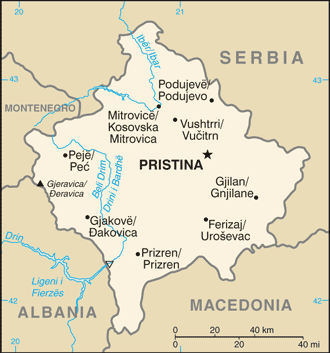
0 notes
Text
Novak Djokovic makes political statement about Kosovo after first-round French Open win

CNN
—
Serbian tennis star Novak Djokovic left a political message on a TV camera lens at the French Open on Monday in response to violent clashes in Kosovo.
Following his first-round victory against American Aleksandar Kovacevic, Djokovic wrote “Kosovo is the of Serbia. Stop the violence” in Serbian on a camera lens, using a heart symbol.
The message was displayed on the big screen of Court Philippe Chatrier.
Tensions have been rising in the past week in Kosovo, which declared independence from Serbia in 2008. There were clashes with protestors on Monday after ethnically Albanian mayors took office in northern Kosovo, a majority Kosovo Serb area, following April elections that Kosovo Serbs had boycotted.
At least 34 soldiers with NATO’s peacekeeping mission in Kosovo were injured during the clashes.
Djokovic elaborated on his message in Serbian at a press conference, saying: “This is the least I could have done. I feel the responsibility as a public figure – doesn’t matter in which field – to give support.
“Especially as a son of a man born in Kosovo, I feel the need to give my support to our people and to the entirety of Serbia. I don’t know, and I think many others don’t know, what the future brings for Kosovo and for Serbian people, but it’s necessary to show support and demonstrate unity in these kinds of situations. I don’t know what will happen.”

Djokovic’s reference to the “entirety of Serbia” reflects the policy of the Serbian government, which still considers Kosovo to be an integral part of its territory and has not recognized the country’s independence.
NATO’s Kosovo Force (KFOR) said that recent developments in Kosovo had prompted it to increase its presence in the northern part of the country on Monday.
According to the Italian defense ministry, some KFOR soldiers were injured when protesters threw “Molotov cocktails with nails, firecrackers and stones.”
Reuters reported that Djokovic said he had not been approached by French Open organizers about the message he wrote on the camera lens, a photo of which he also shared on Instagram. CNN has contacted the French Tennis Federation for comment.
“My stance is clear: I am against wars, violence and any kind of conflict, as I’ve always stated publicly. I empathize with all people, but the situation with Kosovo is a precedent in international law,” the 36-year-old added.
As a child growing up in Belgrade, Djokovic lived through NATO’s 78-day bombing campaign in 1999, which was intended to end atrocities committed by troops of Yugoslavia’s then-president Slobodan Milošević against ethnic Albanians in Kosovo.
Djokovic is aiming to win his 23rd grand slam title at the French Open, which would move him clear of Rafael Nadal at the top of the men’s all-time list.
Source link
Read the full article
0 notes